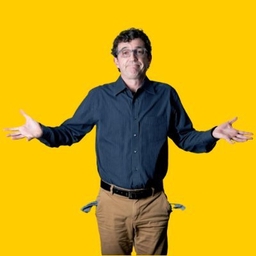
Peter Ubel
Professor, Duke University and Contributor at Freelance
Physician-researcher studying medical decisions, ethics, and health policy.
Articles
-
1 week ago |
forbes.com | Peter Ubel
A draft copy of the form proposed for use to apply for low-cost insurance from Medicaid Tuesday Mar. ... More 12, 2013. (AP Photo/J. David Ake)Copyright 2013 AP. All rights reserved. Over the past decade and a half, the American healthcare system has undergone a silent revolution.
-
1 week ago |
kevinmd.com | Vivek Podder |Natalie Enyedi |Cindy Thompson |Peter Ubel
On June 12, 2025, Air India flight crashed minutes after takeoff from Ahmedabad in India. Among the 242 people on board, only one survived: a man seated in 11A. That image has stayed with me—not just because of the miraculous survival, but because of what it reveals about systems. Seat 11A was located near the plane’s wing box, the structurally strongest part of the aircraft, and beside an emergency exit. Experts say this rare combination gave him a chance. Everyone else perished.
-
2 weeks ago |
forbes.com | Peter Ubel
Ivan Pavlov and his staff demonstrating condition reflex phenomenon with a dog. Bettmann ArchivePain and I have a long history. I have experienced it firsthand, basically every day since high school. I’ve dealt with it second hand, too—in the two-plus decades I practiced as a primary care physician, pain was the most common problem I addressed with my patients. For all those decades, I held on to a flawed and unrealistic goal of finding pills or procedures that would abolish pain.
-
1 month ago |
forbes.com | Peter Ubel
Imagine your physician prescribed an expensive new drug for you, hopeful it will control a serious chronic illness. Concerned about its price, you ask what your out-of-pocket costs will be. To help your physician, you even pull out details of your insurance coverage. But even with this information in mind, don’t expect your physician to be able to estimate your costs. The complexity of American health insurance coverage has many physicians bamboozled.
-
1 month ago |
forbes.com | Peter Ubel
The experiment was simple. A group of behaviorally-minded researchers tested whether patients are more likely to receive mammograms when those tests are automatically scheduled (meaning they can opt out if they want) versus when they have to opt in for the tests. The researchers predicted that people who have to opt out of the test will be much more likely to receive it. Lots of research shows that when you turn a behavior into a default, things are more likely to happen.
Try JournoFinder For Free
Search and contact over 1M+ journalist profiles, browse 100M+ articles, and unlock powerful PR tools.
Start Your 7-Day Free Trial →X (formerly Twitter)
- Followers
- 6K
- Tweets
- 5K
- DMs Open
- No

Cool article helping journalists understand how immigration policies are playing out in healthcare settings. https://t.co/ngLmTTAR2o

Many people with chronic pain find themselves interacting with clinicians who do not seem to trust them. Why? And what can you do about it? Here's a story I hope will help you understand: https://t.co/eCHcbFySEs

RT @NEJM: Perspective by Holland Kaplan, MD, Anna Cabot, JD, and Peter Ubel, MD (@peterubel): Health Care in an Evolving Immigration Landsc…